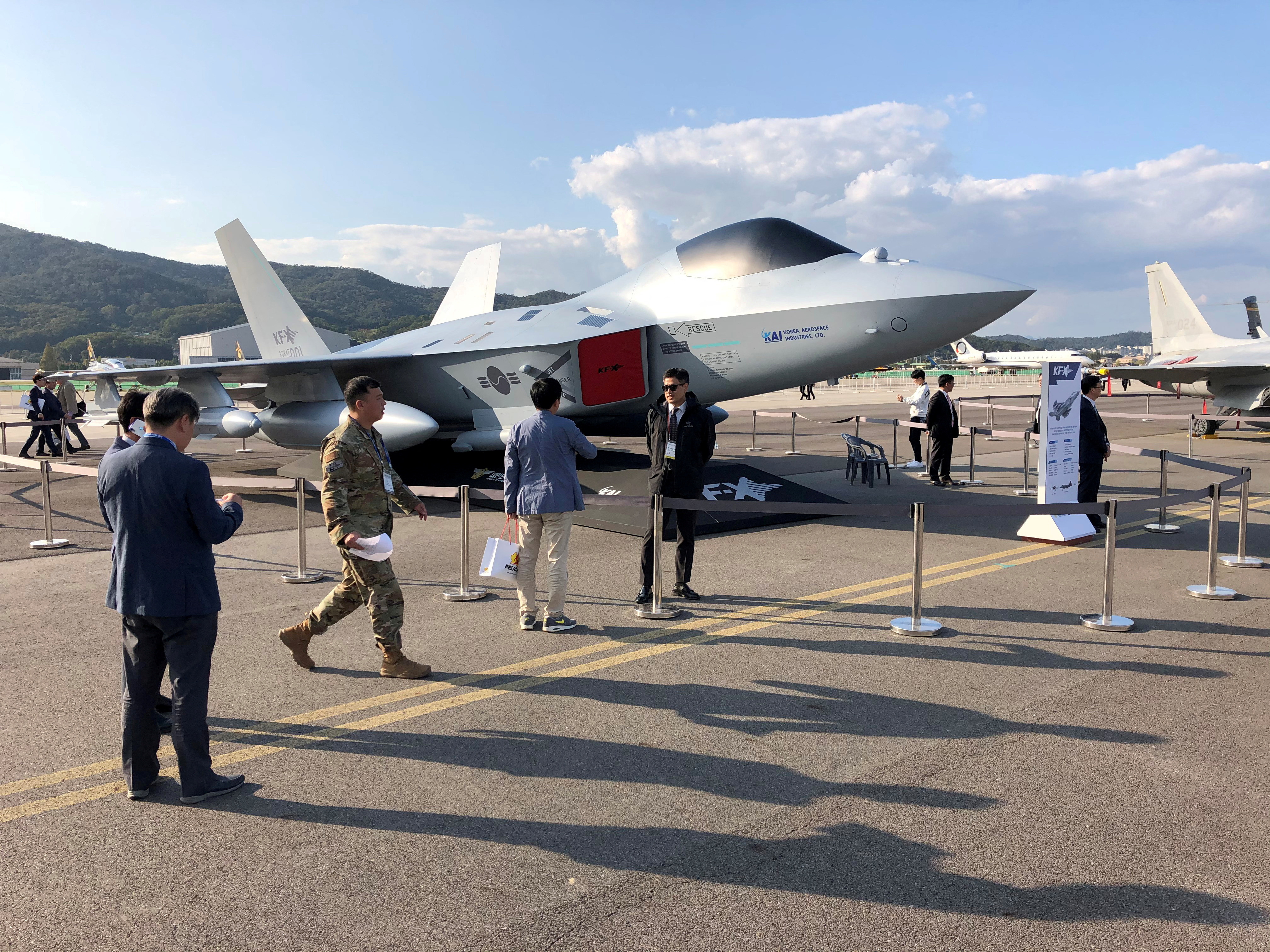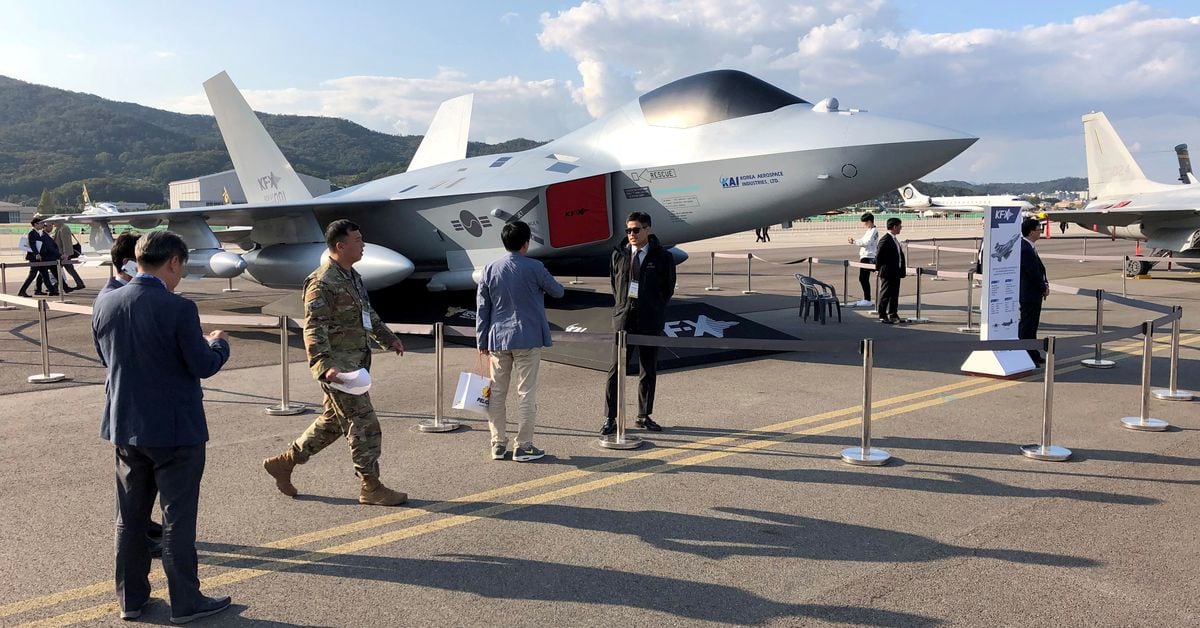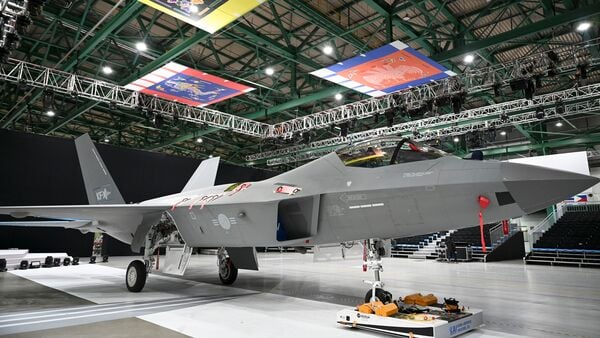Flashback on the project
2018 article made by Indonesian defence analyst
--------------------------------------------------
Should Indonesia continue KFX/IFX program?
In a busy assembly hangar of PT Dirgantara Indonesia (DI) stands a new light transport airplane. (JP/Marguerite Afra Sapiie)
Curie Maharani and Sezsy Yuniorrita (The Jakarta Post)
PREMIUM
Jakarta ● Wed, July 4, 2018
After eight years, the KFX/IFX indigenous jet fighter coproduction program involving Indonesia and South Korea is hanging in the balance.
South Korean officials have expressed concern about Indonesia’s failure to pay its share of investment in 2017, saying this put the program in jeopardy. Indonesia has to make a decision on its participation in the program sooner rather than later.
The KFX is an essential part of the acquisition strategy that aims to kill two birds with one stone: to replace air force inventory — around 300 jet fighters in Korea and more than two squadrons in Indonesia — and to build up indigenous research and development (R&D) capabilities and manufacturing capacity.
It was agreed that six prototypes and around 120 aircraft would be built by 2021 and 2032, respectively. Predictably, the program ran up against (geo)political, technical and fiscal issues.
The financial risk is mitigated by a burden-sharing scheme in which Indonesia as the junior partner has committed to US$1.4 billion for R&D and to the procurement of 50 jets, whereas Korea as the lead would provide $7.1 billion and order around 150 aircraft.
Yet the project still fell short of the required financial and technological capacity. In 2015, United States firm Lockheed Martin joined in as a third partner to close the gap.
Political risks have threatened the project more than once. The Korean side postponed the program twice, in 2011 and 2013, for a soul-searching period that eventually addressed its self-doubt, while Indonesia patiently waited. The US government’s refusal to transfer four core technologies in 2015 came as another blow, but Korea and Indonesia persevered.
The technological gap between Indonesia and Korea presents the biggest challenge for the program. Korea, having experience in manufacturing jet fighters from two earlier projects, sought to bridge the gap by building up local capacity, including for the AESA radar and cruise missiles. Zero experience in Indonesia in developing fighters has been mitigated by strengthening local capacity to improve technological readiness, especially in weaponry systems.
South Korea has both the ingenuity and determination to complete the KFX program. They combined indigenous R&D and an offset deal accompanying their procurement of 40 F-35s to secure the transfer of 25 technologies from Lockheed Martin to the KFX program. When the US refused to transfer four core technologies (AESA radar, infrared search and tracking, electronic optical targeting pods and radio frequency jammers), Korea wasted no time to approach European partners — Sweden and the United Kingdom — and Israel, to name a few, for alternatives.
For Indonesia, the challenges stem not only from technological issues, but also from (geo)political and institutional aspect. Indonesia’s free and active foreign policy dictates the politics of arms diversification.
Not only has this placed Indonesia in the crossfire of US sanctions on Russian arms. Even worse, Indonesia’s plan to proceed with the purchase of Su-35s increases the possibility that the US will block technology transfer to the KFX/IFX project.
Institutional deficiencies are also holding Indonesia back. First, the absence of a defense technology security system, which is vital to ensure the security of technology developed with and transferred from a foreign partner. Since 2014, Korea has been urging Indonesia to establish such a system as a counterpart to its Defense Technology Control Bureau. Unless such a system is put in place, it’s hard to imagine that a foreign partner would entrust Indonesia with its treasured technology.
Second, worse yet, there is perpetual self-doubt that leads to concern about “when to cut losses”, which has intensified upon learning of the risk of a US technology ban.
What are the options available for Indonesia? First, to bail out from the KFX/IFX project means abandoning the most expensive defense R&D and government multiyear priority program that has spanned two presidencies. That choice would cause domestic uproar and create tension with Korea.
Second, to continue IFX without US assistant to Korea, which implies finding a new partner. Great complications would accompany this choice, including the time and cost for starting over as well as adjustment to the new partner.
Third, to continue KFX/IFX with caution.
Both the first and second option would likely end up the same: to scrap the KFX and buy off-the-shelf with offset. A choice that would come eight years and more than Rp 3 trillion too late.
The third option makes more sense for three reasons. First, there is arguably no other country Indonesia has deeper defense technology cooperation with. Seoul has assisted three Indonesian defense companies, aircraft maker PT Dirgantara Indonesia, shipbuilder PT PAL and arms producer PT Pindad, during their survival period (1999-2009), through technology transfer in the procurement of Infantry Fighting Vehicle (IFV) and Landing Platform Dock (LPD) training aircraft. Since then, the two countries have had six annual defense cooperation industrial meeting (DCIMs), which increased the level of familiarity and trust.
Second, Seoul and Jakarta have stumbled upon many impediments and successfully overcome them. There were glitches during technology transfer of the LPDs and their submarine program. Still the two managed to settle the issues, albeit involving third party assistance.
Now Indonesia has not only produced its own LPDs, but also exported its own version to the Philippines. PT PAL is now building a submarine as part of technology transfer that followed Indonesia’s procurement of two submarines from Korea.
The third argument depends on how Indonesia plays its geopolitics cards. Indonesia-US relations are improving, although not yet fully restored. More opportunities are on the table, including technological cooperation beyond foreign military sales.
Earlier this year, the US offered to sign a Terms of Reference on Armaments Cooperation, which, if approved, will pave the way for partnerships between the US Armed Forces and the Indonesian counterpart — a small step, but nevertheless progress toward building trust.
If that confidence is maintained, this would help Indonesia make the KFX program a success.
After eight years, the KFX/IFX indigenous jet fighter coproduction program involving Indonesia and South Korea is hanging in the balance.

www.thejakartapost.com















